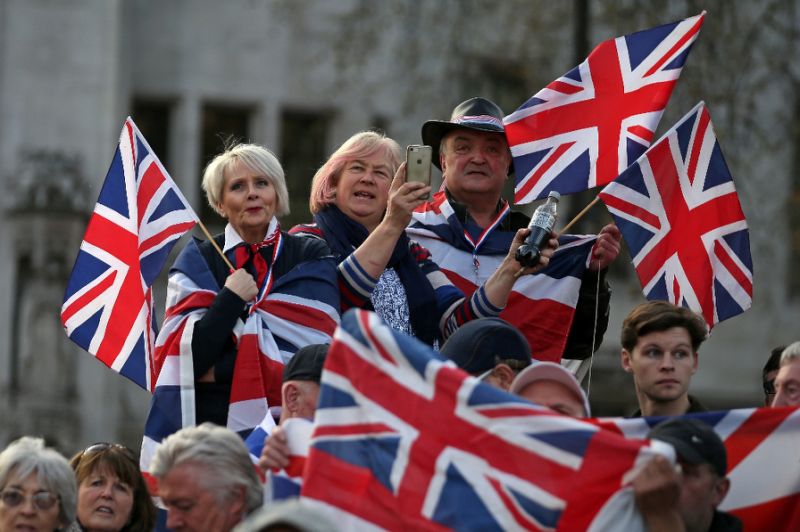LONDON: British MPs will try again to chart a new Brexit path on Monday after rejecting Prime Minister Theresa May’s deal for a third time, but the EU warned its patience was wearing thin.
Less than two weeks before Britain risks crashing out of the European Union, MPs will hold a second round of votes on various options to try to break the political deadlock.
But any attempt to force May to accept a closer relationship with the EU risks splitting the government, and there is widespread speculation she might try one last time to get her deal passed this week.
European Union leaders have called an emergency summit on April 10 and have warned that unless Britain sets out what it wants to do, it risks severing ties with its largest trading bloc two days later with no deal at all.
“With our British friends we have had a lot of patience, but even patience is running out,” European Commission President Jean-Claude Juncker told Italian public TV channel Rai 1 on Sunday.
Britain voted by 52 percent to leave the EU in a 2016 referendum, but the process has been mired in divisions over the terms of the divorce and what kind of future ties to seek.
May struck a divorce deal with the EU last November, but it has been repeatedly rejected by MPs, the last time on Friday — even after she promised to resign if her rebellious Conservative colleagues helped push the deal through.
Th
e impasse has forced May to postpone Britain’s original exit day from March 29, but she said it would be “unacceptable” for a further delay beyond European Parliament elections held from May 23 to May 26.
Frustrated with her approach, MPs in the House of Commons last week voted to give themselves powers to find an alternative strategy, by holding a series of “indicative votes” on various options.
No single plan won a majority in the first round but MPs hope to whittle down the proposals on Monday evening, with voting starting at 8.00 pm (1900 GMT), and another day of debate is scheduled for this Wednesday.
The two most popular options last week were a new EU-UK customs union or a public vote on any agreed deal. There were a large number of abstentions on another widely discussed option, based on Norway’s membership of the single market.
In an interview with the BBC released Monday, Chief Whip Julian Smith — the man responsible for enforcing discipline among May’s MPs and ministers — suggested that a closer relationship with the EU was “inevitable”.
The 2017 election where May lost her parliamentary majority meant “this would be inevitably a kind of softer type of Brexit”, he said.
He also denounced the behaviour of May’s own ministers, who he said were trying to undermine her. “This is I think the worst example of ill-discipline in cabinet in British political history,” he said.
While some pro-European members of May’s cabinet might support a customs union, she herself is opposed and it threatens mass rebellion among the rest of her ministers.
Brexit-supporting minister Andrea Leadsom has reportedly organised a letter signed by 170 Conservative MPs including 10 cabinet ministers, demanding a swift Brexit, with or without a deal.
The votes by MPs are not legally binding but carry political weight, and the government fears they may lead to legislation that would force May’s hand.
“I fear we are reaching the limits of this process in this House,” she said last week. Speculation is growing that the only way out may be a general election.
But many Conservative MPs oppose the idea, and polling on Sunday put Jeremy Corbyn’s Labour party ahead.
Conservative deputy chairman James Cleverly told Sky News: “I don’t think an election would solve anything.
“Time is of the essence, we have got Brexit to deliver. We don’t want to add any more unnecessary delay.” (AFP)







